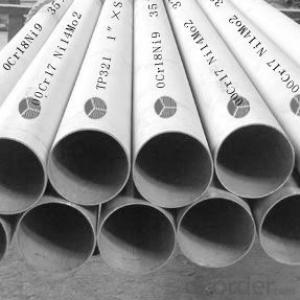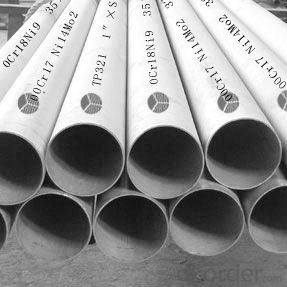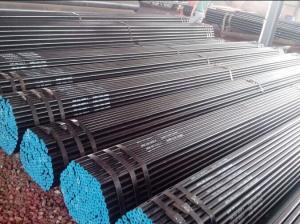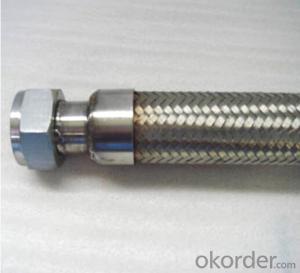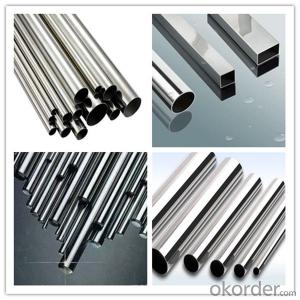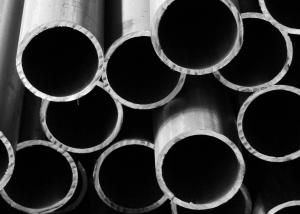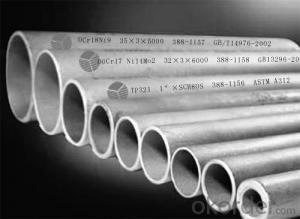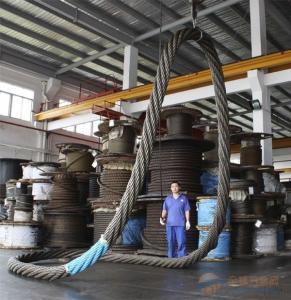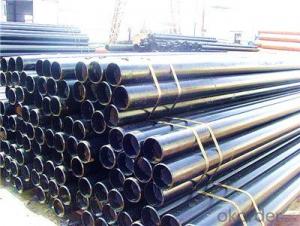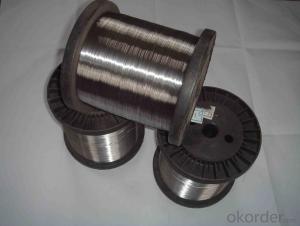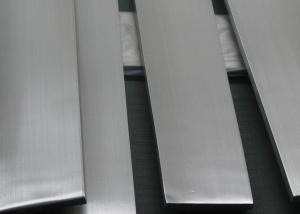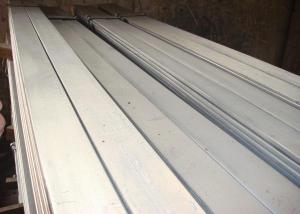Stainless Duplex Seamless Steel Pipe High Nicke 31803
- Loading Port:
- Ningbo
- Payment Terms:
- TT OR LC
- Min Order Qty:
- 1 m.t.
- Supply Capability:
- 5000 m.t./month
OKorder Service Pledge
OKorder Financial Service
You Might Also Like
1、Structure of Duplex steel A790 31803 seamless pipe Description:
Stainless steel is a production which not easy rust,acid resistance and corrosion resistance,so it is widely used in light industry,heavy industry,daily necessities and the decoration industry.my company long-term supply stainless steel porducts including:stainless steel sheet,stainless steel coil and stainless steel tube.
2、Main Features of Duplex steel A790 31803 seamless pipe:
• High manufacturing accuracy
• High strength
• Small inertia resistance
• Strong heat dissipation ability
• Good visual effect
•Reasonable price
3、Duplex steel A790 31803 seamless pipe Images:
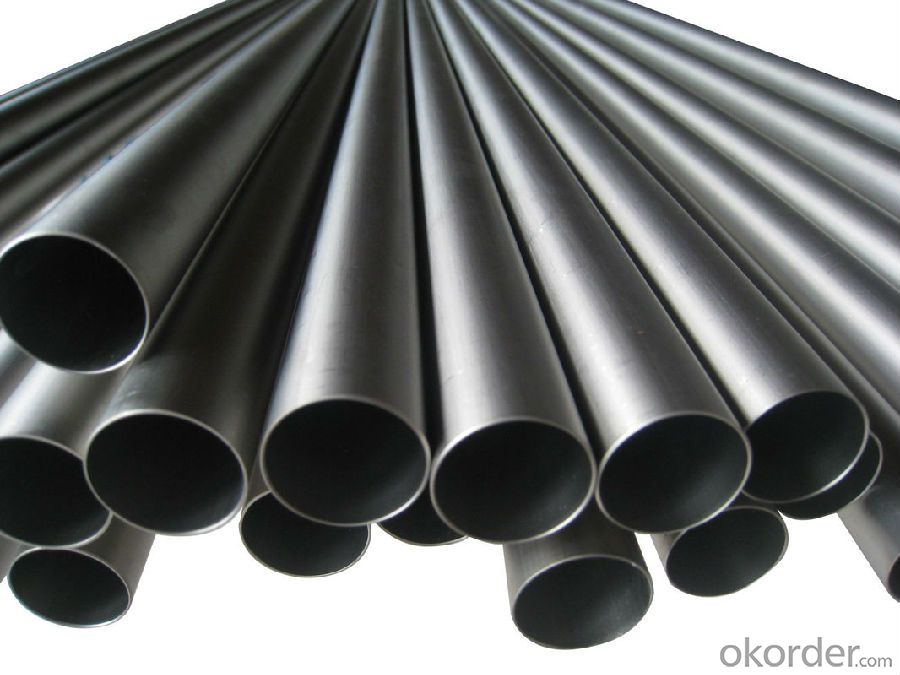
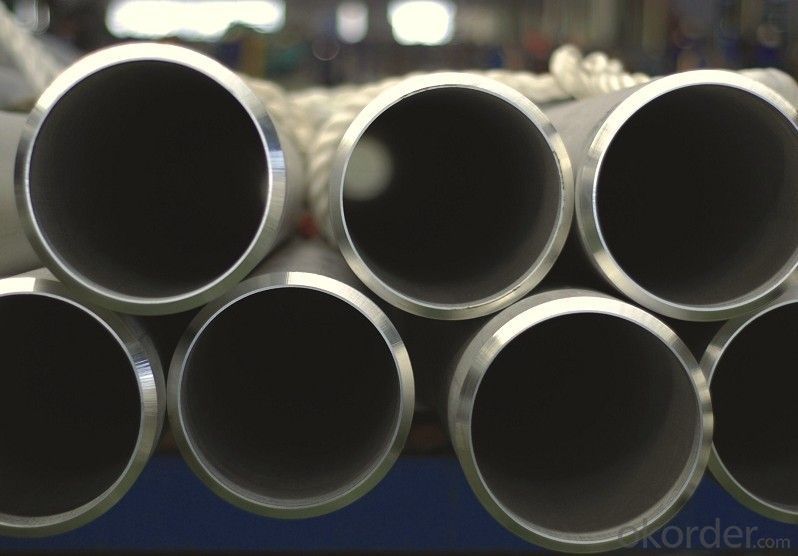
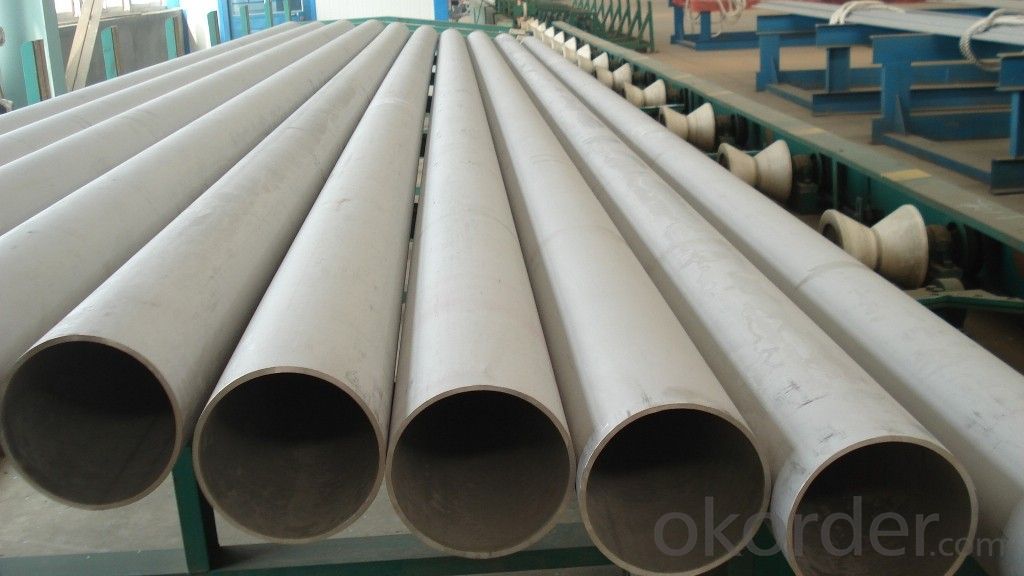
4、Duplex steel A790 31803 seamless pipe Specification:
1. Process: Cold Rolling/ Cold Drawn
2. Size: 10mm-480mm
3. Standards: ASTM A312, ASTM A213, ASTM A269, DIN 2462, JIS G3463
4. Schedules:1mm-30mm
5. Material: TP304, TP304L, TP316L, TP321, TP317L, TP310S, TP347H, duplex steel
6.Surface Treatment: polishing, sand blasting,annealing and acid pickling
7.Package: export package (weaving bag ,non-fabric ,wooden case)
| process | size | standard | schecules | material | surface | package |
cold drawn/ cold rolling | 10-480mm | A312 A213 A269 etc. | 1-30mm | 304/321/316 310/317/347 duplex steel
| polishing annealing and pickling
| weaving bag in bundle plywood case |
5、FAQ of Duplex steel A790 31803 seamless pipe:
①How is the quality of your products?
Our products are manufactured strictly according to national and internaional standard, and we take a test
on every pipe before delivered out. If you want see our quality certifications and all kinds of testing report, please just ask us for it.
Guaranteed: If products’ quality don’t accord to discription as we give or the promise before you place order, we promise 100% refund.
②How about price?
Yes, we are factory and be able to give you lowest price below market one, and we have a policy that “ for saving time and absolutely honest business attitude, we quote as lowest as possible for any customer, and discount can be given according to quantity”,if you like bargain and factory price is not low enough as you think, just don’t waste your time.Please trust the quotation we would give you, it is professional one.
③Why should you chose us?
Chose happens because of quality, then price, We can give you both.Additionally, we can also offer professional products inquiry, products knowledge train(for agents), smooth goods delivery, exellent customer solution proposals.Our service formula: good quality+good price+good service=customer’s trust
SGS test is available, customer inspection before shipping is welcome, third party inspection is no problem.
Any question, pls feel free to contact us !
- Q: Can stainless steel pipes be surface treated?
- Stainless steel pipes have the capability to undergo surface treatment, which is commonly performed to enhance their aesthetics, corrosion resistance, and durability. Surface treatment methods for stainless steel pipes include passivation, electropolishing, pickling, and the application of various coatings. Passivation involves eliminating impurities from the stainless steel's surface, resulting in the formation of a protective oxide layer that improves corrosion resistance. Electropolishing is an electrochemical process that smoothens and polishes the surface of stainless steel pipes, giving them a better appearance and reducing the chances of bacterial growth. Pickling, on the other hand, utilizes acid solutions to remove scale and oxide layers from the surface. Additionally, stainless steel pipes can be coated with substances like powder coating, paint, or plating to offer added protection against corrosion, enhance appearance, or fulfill specific requirements. In conclusion, the options for surface treatment of stainless steel pipes are extensive, allowing for customization to meet functional and aesthetic preferences.
- Q: Can stainless steel pipes be pickled?
- Indeed, it is possible to pickle stainless steel pipes. Pickling serves as a method employed in order to eliminate impurities, including scale, rust, and various surface contaminants, from the exterior of stainless steel. This procedure entails submerging the stainless steel pipes in a pickling solution, which typically consists of a combination of nitric and hydrofluoric acid. As a result of the pickling solution's action, the impurities are dissolved, leaving behind a pristine and sleek surface on the stainless steel pipes. Pickling is widely utilized in industries such as oil and gas, food processing, and chemical processing to prepare stainless steel pipes for subsequent procedures or to enhance their resistance to corrosion.
- Q: Does stainless steel pipe belong to hardware?
- Hardware refers to gold, silver, copper, iron, tin, five kinds of metal materials, carbon steel and stainless steel is iron upgrade, naturally belongs to the hardware.
- Q: Can stainless steel pipes be used for solar water heating systems?
- Yes, stainless steel pipes can be used for solar water heating systems. Stainless steel is a popular choice for solar water heating systems due to its durability, corrosion resistance, and ability to withstand high temperatures. It is well-suited for withstanding the harsh outdoor conditions and exposure to sunlight that solar water heating systems often face. Additionally, stainless steel pipes are known for their longevity, which makes them an ideal choice for long-term use in solar water heating systems. Overall, stainless steel pipes offer excellent performance and reliability for solar water heating systems.
- Q: Can stainless steel pipes be used for oil refinery applications?
- Yes, stainless steel pipes can be used for oil refinery applications. Stainless steel is widely used in the oil and gas industry due to its excellent corrosion resistance properties, high strength, and durability. Oil refineries deal with harsh and corrosive environments, including high temperatures, pressure, and exposure to various chemicals. Stainless steel pipes can withstand these conditions and offer long-lasting performance. Stainless steel pipes are resistant to corrosion caused by acidic and alkaline substances, which are commonly found in oil refinery operations. They also have good resistance to pitting and crevice corrosion, making them suitable for handling crude oil, petroleum products, and other corrosive media. Furthermore, stainless steel pipes can handle high temperatures without losing their strength and integrity. This is important in oil refineries where processes involve heating and cooling operations. In addition to corrosion resistance and high-temperature capabilities, stainless steel pipes also provide excellent mechanical properties. They are strong, durable, and have good weldability, making them suitable for the demanding conditions of oil refinery applications. Overall, stainless steel pipes are a reliable choice for oil refinery applications due to their corrosion resistance, high-temperature capabilities, and mechanical properties. They ensure the safe and efficient transportation of oil and petroleum products, contributing to the smooth operations of oil refineries.
- Q: Are stainless steel pipes suitable for architectural applications?
- Yes, stainless steel pipes are highly suitable for architectural applications. They offer excellent durability, corrosion resistance, and aesthetic appeal, making them an ideal choice for various architectural structures such as handrails, facades, and interior designs. Additionally, stainless steel pipes can withstand harsh weather conditions, maintain their appearance over time, and require minimal maintenance, further enhancing their suitability for architectural use.
- Q: Can stainless steel pipes withstand high temperatures?
- Stainless steel pipes are renowned for their remarkable ability to resist heat and endure extreme temperatures. The temperature capacity of stainless steel pipes relies on the specific grade employed. Typically, stainless steel pipes retain their structural integrity even at temperatures as high as 1200°C (2192°F). Furthermore, these pipes possess exceptional resistance to corrosion, rendering them ideal for industrial settings that involve both high heat and corrosive surroundings, such as chemical processing plants, power generation facilities, and automotive exhaust systems.
- Q: What is the difference between 430 and 316 stainless steel pipes?
- The main difference between 430 and 316 stainless steel pipes is their composition and properties. 430 stainless steel is a ferritic stainless steel, which means it contains a higher percentage of chromium and has a lower nickel content compared to 316 stainless steel. This makes 430 stainless steel less corrosion resistant and less suitable for applications in highly corrosive environments. On the other hand, 316 stainless steel is an austenitic stainless steel, which contains higher amounts of chromium and nickel, providing excellent corrosion resistance and making it suitable for use in marine environments and industries with high levels of exposure to chemicals and salt. Additionally, 316 stainless steel has superior strength and heat resistance compared to 430 stainless steel.
- Q: What is stainless steel pipe made of?
- Stainless steel pipe is primarily made of an alloy consisting of iron, chromium, and other elements such as nickel and manganese. The exact composition of stainless steel pipes may vary depending on the grade or type of stainless steel being used. Generally, stainless steel pipes have a high chromium content (at least 10.5%) which provides excellent corrosion resistance and durability. The addition of other elements helps to enhance various properties of the stainless steel pipe, such as strength, heat resistance, and weldability. Overall, stainless steel pipes are made of a strong and versatile material that is resistant to corrosion, making them suitable for a wide range of applications in industries such as construction, automotive, and manufacturing.
- Q: What is the maximum diameter of stainless steel pipes available?
- The maximum diameter of stainless steel pipes available can vary depending on the manufacturer and supplier. However, stainless steel pipes typically range from smaller diameters, such as ½ inch or 1 inch, to larger diameters, such as 36 inches or even more. It is important to note that the availability of larger diameters may be limited and may require special ordering or customization. Therefore, it is advisable to consult with specific manufacturers or suppliers to determine the maximum diameter of stainless steel pipes they offer.
Send your message to us
Stainless Duplex Seamless Steel Pipe High Nicke 31803
- Loading Port:
- Ningbo
- Payment Terms:
- TT OR LC
- Min Order Qty:
- 1 m.t.
- Supply Capability:
- 5000 m.t./month
OKorder Service Pledge
OKorder Financial Service
Similar products
Hot products
Hot Searches
Related keywords
